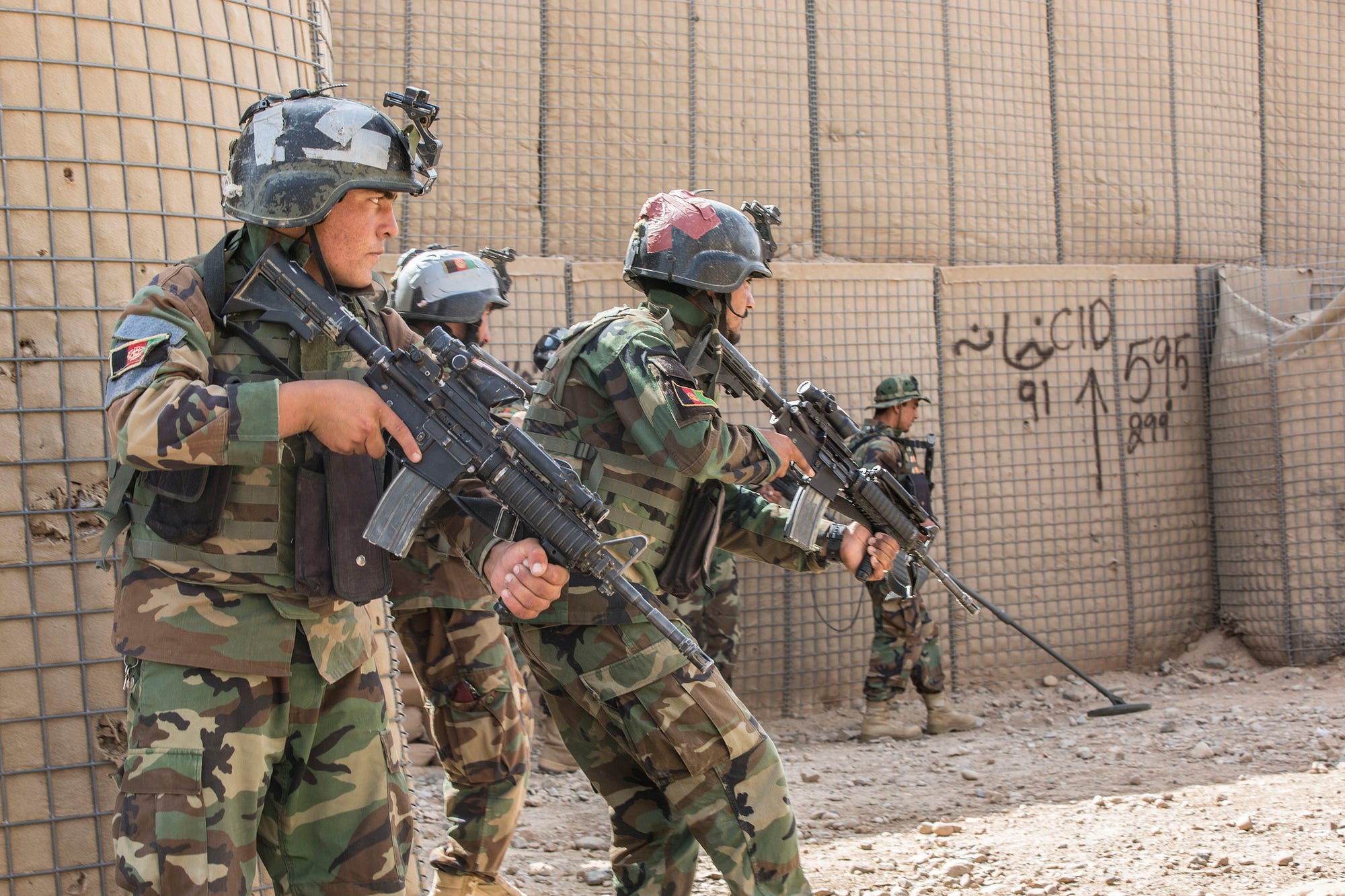Alliance wants to wean Kabul off foreign help in just two years
In 2015, NATO will shift its priorities in Afghanistan from fighting insurgents to advising local forces. But the alliance’s plan to provide training, logistics and oversight for Kabul’s troops could run into trouble.
The revised strategy sees international troops helping the Afghans with “eight essential functions,” rather than simply teaming up with Afghan forces in the field, according to an official NATO handbook obtained by War Is Boring.
The eight-function plan is supposed to be temporary. NATO commanders want Kabul to be able to handle security all on its own within two years.
“The Afghans no longer need much help fighting the Taliban—they can do that on their own,” U.S. Marine Corps general Joseph Dunford writes in the manual’s introduction.
But “Afghan ministries still have challenges with delivering spare parts, ammunition and other essentials” and “need help with critical tasks,” adds Dunford, who was in command of all foreign forces in the country until August.
These “critical tasks” include things like helping Afghan authorities draw up realistic budgets, recruit and train personnel and manage supplies and maintenance. NATO has been working for a year to develop this over-arching “functional” approach.
NATO’s International Security Assistance Force will also try fixing Kabul’s nagging problems with corruption and human rights. The official guidebook highlights the Afghan security forces’ bad habit of committing extra-judicial killings.
But ISAF could have a hard time bringing all of these things together—and the alliance knows it. “Quite candidly … there’s been some impediments to [the development of Afghan forces], based on maybe some political decisions within their own country,” U.S. Army Gen. John Campbell, the current ISAF commander, told reporters earlier in October.
 Above—Afghan Special Forces train in Helmand Province. At top—Afghan army cadets parade in Kabul. ISAF photos
Above—Afghan Special Forces train in Helmand Province. At top—Afghan army cadets parade in Kabul. ISAF photos
At the moment, the Afghan National Security Forces still rely heavily on foreign support—especially for air strikes and intel. “The general view has long been that the ANSF has a great deal of work yet to do,” notes Dr. Stephen Biddle, a fellow at the Council on Foreign relations.
NATO knows Kabul isn’t ready to step up as the majority of foreign troops head home this year—which is the whole reason for the eight-point plan in the first place.
The Pentagon’s watchdog in the country recently discovered that the ANSF is running out of spare parts for a fleet of American-supplied armored cars. American officials also apparently can’t account for all the rifles and machine guns they’ve sent to the Afghans.
In addition, Afghan authorities have had trouble with more rudimentary things like teaching their forces how to read and write, recruiting women and keeping everyone on the job. As of February, less than a fifth of the ANSF was functionally literate and fewer than one percent of Afghan troops are women, according to Pentagon reports.
“In the face of such gaps … the ANSF may choose to limit their reach … [or] may cut local-level deals with insurgents,” Catherine Dale, a specialist at the Congressional Research Service, told members of the House Armed Services Committee back in July.
And unless they’re working with commando units, under the updated program NATO’s advisory teams will mostly stay in regional command centers. The advisers will rely on their Afghan counterparts for information about what’s really going on in the provinces.
“If advisers identify problems that the ANSF do not regard as problems, the issue is not likely [to] be resolved in due time,” the NATO handbook points out.
In the end, the new ISAF assistance plan counts on Kabul getting its act together—and fast. When NATO trainers make Afghan troops “use their own systems and processes … it forces their systems to work [and] it builds confidence in their systems.”
But it kind of sounds like the alliance doesn’t have a lot of confidence in itsown plan for weaning the Afghans off of foreign assistance. “There are numerous instances where advisers cannot resolve Afghan process issues,” the guidebook laments.
Two years definitely isn’t a whole lot of time to fix all of Kabul’s problems.
No comments:
Post a Comment